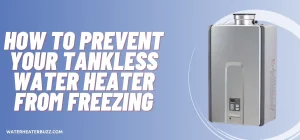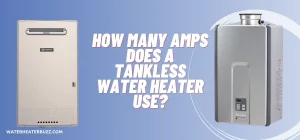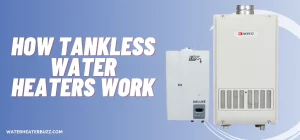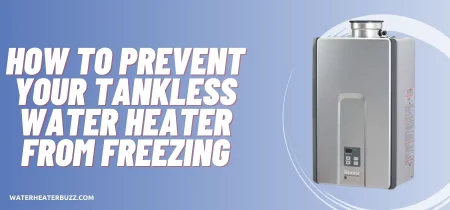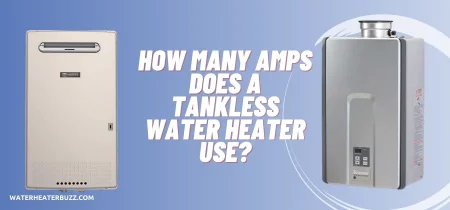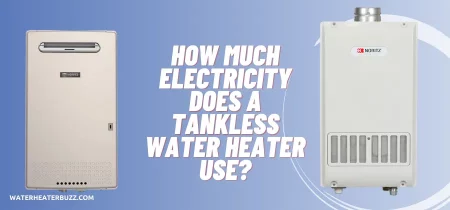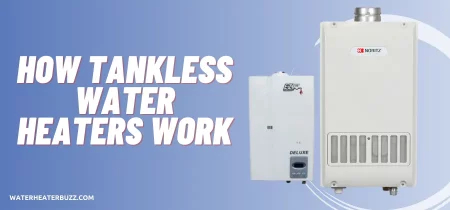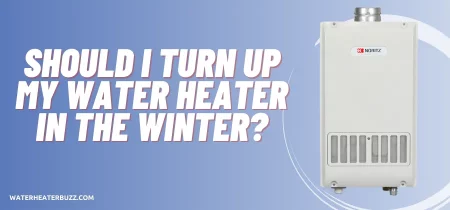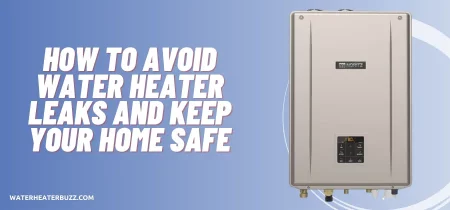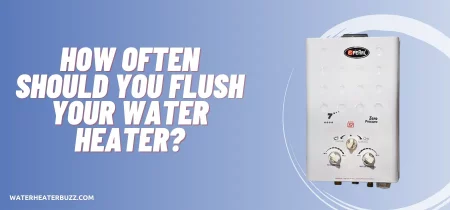Want to prevent a drastic increase in figures in water bills? Let us imagine another situation: a family member just dodged a bullet since the water tank threw some hot water in the surroundings. What if the real reason behind these issues is ignorance and low maintenance? Yes, these factors contribute to some of the major problems one might face.
Therefore, it is essential to keep testing the tank to prevent purchasing another heater within five years. Testing the efficiency and condition of the heater keeps its parts in a good state, and they continue to play their roles without disappointing you. I have mentioned some easy yet crucial pointers to facilitate you in keeping your product in excellent shape.
How to Maintain Water Heater
Generally, some main maintenance tips and procedures apply to every type of heater (electric, propane, or natural gas water heater). However, there might be some models, especially modern ones, for which maintenance and monitoring are more convenient. It is because they include fewer complex parts and connections.
Test the Pressure Relief Valve
You will find this valve either on the side of the tank or top. As the name suggests, the primary function of a pressure relief valve is to loosen up when the water pressure inside the storage exceeds the steady pressure. It prevents the bursting of a tank. To check if it is working correctly, put a container at the bottom of the discharge duct. Then, slowly move the lever upwards on the valve.
If you do not see water coming from a discharge tube, it means the valve is not releasing it, which denotes a faulty valve. Therefore, you need to replace it with a new one. For this task, you will need tools and materials, including a bucket, tape, rags, a pressure valve, and joint pliers.
The initial step is to turn off the valve that allows water into the tank. Now, drain the water heater and remove the discharge pipe. It will be followed by unscrewing the pressure relief valve. After this, use sealant tape to enclose the threads of the functional valve and fit it in. Now check for any leakage.
For checking the success of this work, close the supply of water, which will stop the feeding of cold water. Turn on any faucet on the tank to relieve the pressure inside the water heater. Keep the tap in the same position during the whole process. With an electric heater, you will need to turn off the main power supply. If you are using a gas heater, turn off the control dial to stop the gas supply.
Remove the Sediments and Salts
Since the water heaters keep the hot water in the tank for some period, there is a high possibility that sediments in the hard water will settle down in the tank. Gradually, this process leads to a formation of a thick layer at the bottom. You might ask what possibly can happen. The sediments not only adversely affect the parts in the tank but also can lead to irreversible damage and an increase in energy costs. Therefore, preventing this from happening is extremely necessary.
For maintenance, you must drain the water heater to remove the sediments. In most cases, flushing out two to four gallons of water is enough. However, this does not mean that you keep using this strategy every time. Open the valve in a gentle manner to allow the water to flow. Make sure that you continue draining until you observe no particles in the container you are collecting water. Remember that hot water is running, which means you should take precautions to avoid minor burns or any unpleasant experience.
Noises from Water Heater
If you hear gurgling sounds coming from the water heating device, you do not need to stress about it. When water is drawn away from the discharge tube, the external air enters the storage tank simultaneously. It produces these kinds of sounds. In some situations, you might hear an unusual noise. For example, if an electric heater is producing a strange noise, it is possibly an indication of a low electric supply. Thus, it will need more power to draw sufficient voltage. When unnoticed, it can cause damage to the tank casing in the long run.
Check the Heating Element
Is the water your tank delivers hot but not according to the requirement and set temperature on the dial? There are chances that the heating element is defective. The testing of this component involves some simple basic steps. First, turn off the water supply from the main panel. Make sure the power is discontinued by using a voltage sniffer. Place a sniffer near the live wire and then the wires which enter the tank. Now, when it is safe, you can continue to the next steps.
Screw off the metal cover located at the bottom of the tank. Now, remove the insulation in order to access the part you are going to monitor. You will observe small wires, which you need to disconnect. One of the main reasons behind a faulty element is that it is broken. To check this problem, first, take a continuity tester with the alligator clip and check the quality of the battery.
The tester will light up when you connect the alligator clip with a probe, referring to a functional battery. Now, connect the clip to the screw in the heating element, and touch another screw with the probe. If the tester lights up, it means the element is fully functional. In the opposite case, you need to replace the old element.
Test the Anode Rod
The anode rod is a crucial part of a water heater. This rod is made from metals such as magnesium and aluminum. If not looked after properly, it starts to corrode. Therefore, this component will be unrecognizable over time, will be defective, and lead to rusty water too. It is better to keep checking this rod after a few months to avoid severe problems in the future.
Adjust the hose with the drain tube and release some amount of water. Take a socket of approximately 16 inches and fit it onto the hex head. You will find the rod’s head under the top plate or above it. Now loosen the rod through a screwdriver. If it is reduced to the only half-an-inch thickness or has a prominent calcium coating, you should purchase a new one and remove this rod. For fitting a functional rod, use Teflon tape to wrap the threads and screw them in the tank. Place the metal cover back and tighten it.
Frequently Asked Questions
Do gas water heaters need maintenance?
It is necessary to monitor and take care of gas heaters to avoid significant problems in the future. These include leakage, corrosion of water and anode rods, defects in healing elements, and others. Though most gas heaters have a lifespan of 7-10 years, they can work for extended periods if a person keeps checking its parts at least twice a year.
What happens if you don’t flush your water heater?
If you do not flush your water heater, it will lead to rusty water and the build-up of sediments at the bottom area of the tank.
How often should you check the T&P valve?
One should check the functioning of the Temperature and Pressure relief valve twice a year.
Conclusion
Following the procedures that I have mentioned in this article promotes the normal functioning of water heaters for a long period. A few minutes and some effort will save you from stressing for hours. Contacting the customer service or related staff is also helpful if the warranty is not finished yet.

